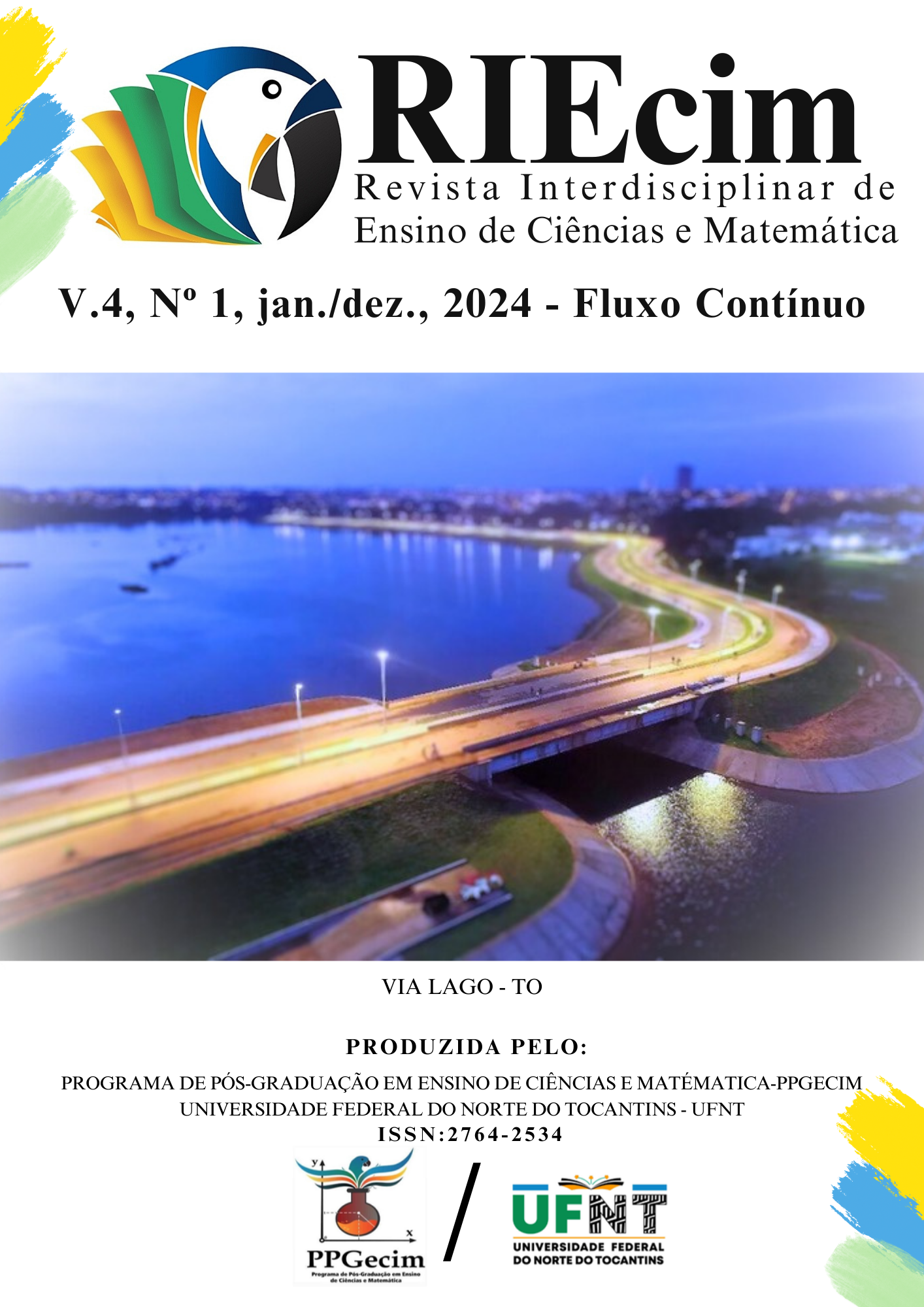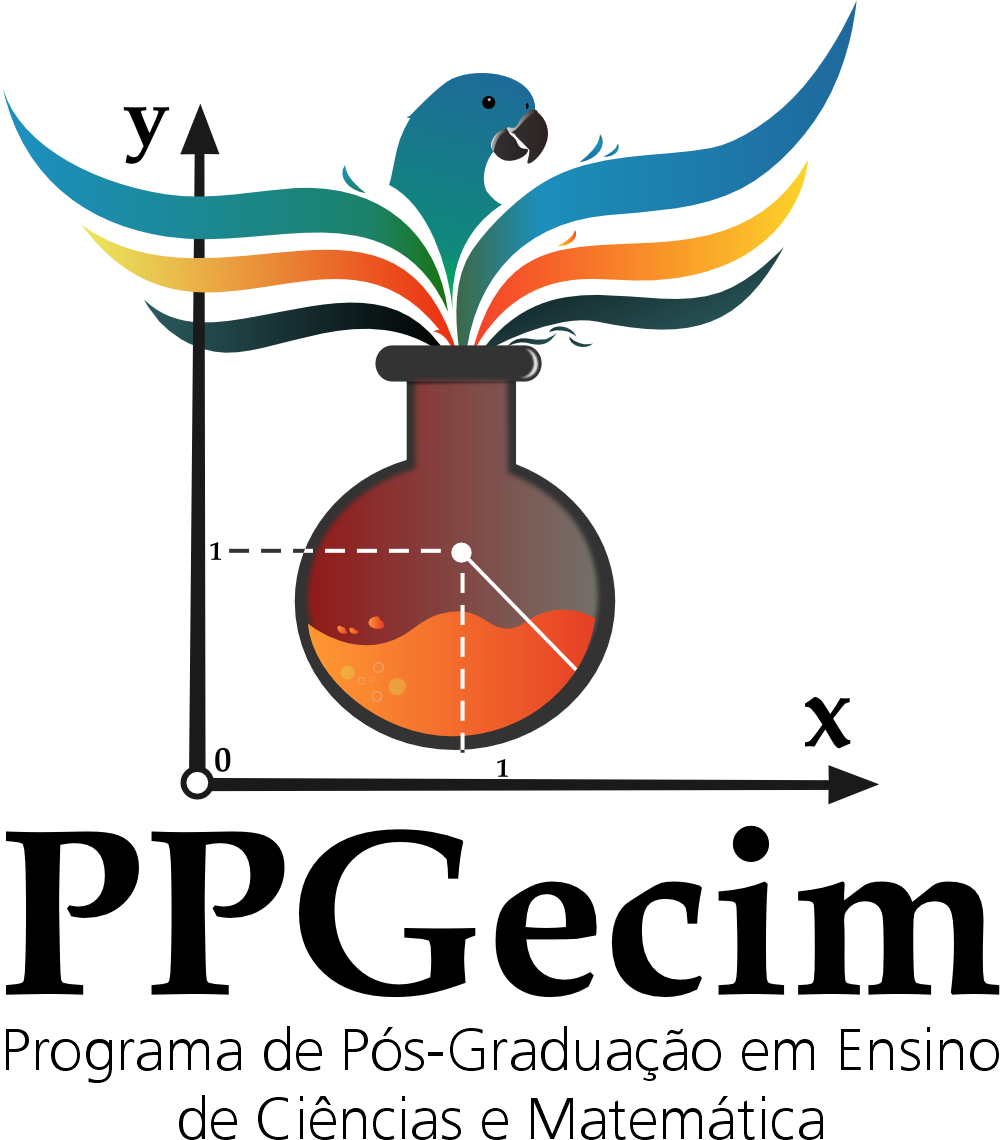AMAZON NON-FORMAL SPACES AS PREVIOUS ORGANIZERS OF LEARNING IN SCIENCE TEACHING
DOI:
https://doi.org/10.70860/RIEcim.2764-2534.2024.v4.19307Keywords:
Non-formal spaces, Previous organizers, Science teachingAbstract
Science teaching in non-formal spaces opens possibilities for the articulation between local knowledge and scientific knowledge with a view to meaningful learning. This article presents the results of a qualitative research with the objective of analyzing, from the perspective of meaningful learning, how local knowledge can become organizers of scientific content learning in the final years of Elementary School. The data were obtained through systematic observation and bibliographic research and were detailed through triangulation. Epistemologically, we sought foundations in the Theory of Meaningful Learning (TAS) from Ausubel (2003) and Moreira (2016), and in theoretical contributions from research around Science Teaching, particularly from non-formal spaces such as: Terán and Santos (2014), Chassot (2018), Ghedin (2012). The results obtained indicate that the informal spaces that exist around the school can become prior organizers of the learning of Natural Sciences content, promoting the interaction between the students' prior knowledge to more efficiently dialogue with scientific knowledge. As a result of the results, with the aim of contributing to the Teaching of Sciences in Amazonian contexts, possibilities of dialogues between the local knowledge of 6th and 7th grade students and contents of the Natural Sciences discipline in line with the Common Curricular Base (BNCC) and the Amazonian Reference Framework (RCA) are indicated.
References
AMAZONAS. Secretaria de Estado de Educação. Referencial Curricular Amazonense. Manaus: 2018.
ANDRADE, A. N. Um ensaio sobre aprendizagem significativa em espaços não formais amazônicos. Anais do VI CONAPESC. Campina Grande: Editora, 2021.
AUSUBEL, D. P. Aquisição e Retenção de Conhecimentos: Uma Perspectiva Cognitiva. 1.a Edição PT-467- janeiro, 2003.
BRASIL, Ministério da Educação. Base Nacional Comum Curricular. Brasília, 2018.
CASCAIS, M.; TERÁN, A. Espaços educativos para a alfabetização científica: uma experiência com estudantes dos anos finais do ensino fundamental. Revista Areté – Revista Amazônica de Ensino de Ciências, v. 5, n. 9, p. 155-156, abr. 2017. Disponível em: http://periodicos.uea.edu.br/index.php/arete/article/view/56. Acesso em: 12 mai. 2023
CHASSOT, A. Alfabetização cientifica: questões e desafios para a educação.7 ed. Ijuí: Unijuí, 2018.
COSTA, L. F. M.; SOUZA, E. G. de; LUCENA, I. C. R. Complexidade e Pesquisa Qualitativa: questões de método. Perspectivas da Educação Matemática, v. 8, n. 18, 18 dez. 2015.
GHEDIN, E.; GHEDIN, M.I. A Contribuição de Célestin Freinet para a Educação em Ciências. In: GHEDIN, E. Teorias Psicopedagógicas do Ensino Aprendizagem Boa Vista: UERR Editora, 2012.
GIL, A. C. Como Elaborar projetos de pesquisa. São Paulo: Atlas, 2008.
MERLEAU-PONTY, M. Fenomenologia da Percepção. São Paulo: Martins Fontes, 1999.
MOREIRA, M. A., MASINI, E. F. S. Aprendizagem significativa a teoria de David Ausubel. São Paulo: Moraes, 1982.
MOREIRA, M.A. Possíveis estratégias facilitadoras da aprendizagem significativa com o objetivo de subsidiar didaticamente o professor pesquisador, em particular da área de ciências. 2ª ed. Porto Alegre, 2016.
Downloads
Published
How to Cite
Issue
Section
License
Copyright (c) 2024 Mara Dalila Ferreira de Araújo, Lucélida de Fátima Maia da Costa

This work is licensed under a Creative Commons Attribution-NonCommercial 4.0 International License.
Copyright Policy
Copyrights are retained by the authors, who grant RIEcim the exclusive rights for first publication. Authors will not be remunerated for the publication of their work in this journal. Authors are permitted to enter into separate, additional contractual arrangements for the non-exclusive distribution of the work's published version in this journal (e.g., post it to an institutional repository, on a personal website, publish a translation, or as a book chapter), with acknowledgement of authorship and initial publication in this journal. The Journal's editors have the right to make textual adjustments and adaptations to conform to publication standards.
Open Access Policy
This journal provides immediate open access to its content, following the principle that freely providing scientific knowledge to the public contributes to the global democratization of knowledge. Users can read, download, copy, distribute, print, search, or use the content for any legal purpose, respecting national copyright laws and without seeking prior permission from the publisher or the author. The opinions presented in the articles are the responsibility of the authors. The Journal does not charge Article Processing Charges (APCs).
Licensing Policy - Usage License
Licensed under the Creative Commons Attribution-NonCommercial 4.0 International (CC BY-NC 4.0) License. This license allows sharing, copying, redistributing the manuscripts published in RIEcim in any medium or format. Additionally, it allows adapting, remixing, transforming, and building upon the material, as long as proper credit is given to the author and initial publication in this journal is acknowledged.

































